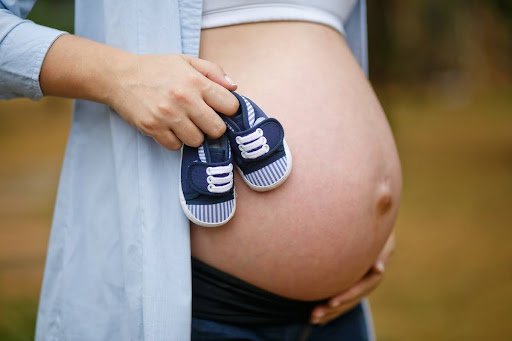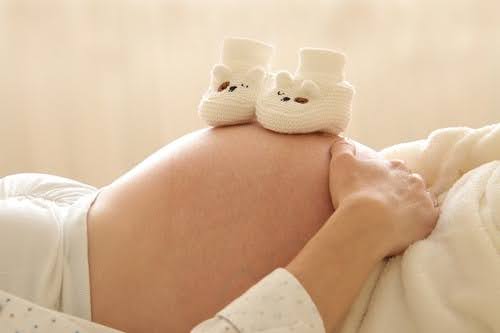A first-time mom? We got you! Being pregnant is described as the most beautiful feeling, but it often has its own challenges. It’s having butterflies in your stomach 24/7, which makes you excited, nervous and curious all at the same time. The moment you conceive, your brain is filled with pregnancy-related questions: “What should I eat?”, “Is this cramp normal?”, “Is my baby safe?” and so on.
I want you to know that you are not alone and that your pregnancy concerns are valid!
Do you know that millions of first-time moms ask the same pregnancy questions?
Here is a list of some of the most common pregnancy issuesfirst-time moms face and how to deal with them.
1. Is Fatigue in the First Trimester Normal?
Ever wondered why you are always sleepy? It is because of the rising blood production and emotional changes. Another definite reason is the progesterone your body produces during the first trimester causing your body extreme fatigue making it one of the earliest signs of pregnancy. So yes, it is normal during pregnancy in the first trimester.
To conserve energy, try to rest as much as you can, eat small energy-rich meals, and listen to your body. Wait for it to get better in the second trimester.
2. Pregnancy Diet: What You Eat Matters
As a new mom, your diet impacts your baby’s development. While you don’t need an extra portion, you need to eat smart. Here are some pregnancy health tips for new moms:
What to eat? A balanced diet rich in protein, fibre, iron, and folate.
What to avoid? Raw seafood, unpasteurised dairy, high-mercury fish (like tuna and king mackerel), and excessive caffeine.
What do the doctors recommend? Leafy greens, fruits, whole grains, lentils, and prenatal supplements.
3. Common pregnancy myths vs facts
I am sure you must have heard advice from relatives and peers to avoid movements. But the narrative is totally misleading. On the contrary, staying active during pregnancy improves circulation, reduces stress, and even helps with a smoother delivery.
Do’s:
- Prenatal yoga
- Walking
- Swimming
- Pelvic floor exercises
Dont’s:
- Heavy lifting
- High-impact workouts,
- Anything that causes discomfort.
Advice: Always consult your doctor before starting a routine.
4. Physical changes in the first pregnancy
Fluctuations in weight depend on person to person during pregnancy. Generally, 25 to 35 pounds is considered healthy for most women with a normal BMI.
Tip: You should take nutrient-dense meals and stay active. Rapid or very low weight gain could signal complications, so it is advised to go on regular check-ups.
5. Baby starts moving between 18-25 Weeks
Feeling your baby’s kick for the first time is a thrilling experience. Most first-time moms begin to feel gentle flutters between weeks 18 and 25.
It may feel like bubbles, butterflies, or tiny flicks. As your baby grows, the movements become stronger and more rhythmic.
⏱ Tip: You should pay attention to your baby’s movement pattern in the third trimester and inform your doctor if anything feels off.
6. Alarming vs Normal Symptoms — Know When to Call the Doctor
When not to worry?:
If you have mild cramps, nausea, or back pain.
When to worry?:
If you have severe or constant abdominal pain, heavy bleeding or fluid leakage, no baby movement in the third trimester and high fever, blurred vision, or extreme swelling.
When to call a doctor during pregnancy? You should call your healthcare provider immediately if you face any of the above high-risk symptoms.
Conclusion
We know that every pregnancy is different, and being a first-time mom is an ongoing learning experience. The shoe will not fit everyone the same. However, through the right guidance, support, staying informed, attending your prenatal appointments, or simply trusting your instincts you can make a first-time mom pregnancy checklist. It is okay to ask questions, big or small.
FAQS –Pregnancy-related questions
Is spotting in early pregnancy normal?
Yes, it is absolutely normal! Light spotting can occur due to implantation. Consult your doctor if it’s heavy or lasts long.
Can I drink coffee during pregnancy?
Caffeine intake under 200 mg/day which is about one 12-oz cup is appropriate.
Is sex safe during pregnancy?
For most women with low-risk pregnancies, yes! Just avoid pressure on the belly and consult your doctor for such pregnancy issues.
When should I start taking prenatal vitamins?
Ideally, as soon as you start planning pregnancy. If not, start as early in the pregnancy as possible.
Do I need to avoid skincare or haircare products?
Retinoids or salicylic acid should be avoided. Do check labels or ask your doctor for pregnancy-safe products.
- Baby Monitors with Noise Monitoring: How They Work and Why They Matter - October 2, 2025
- Attachment Parenting Guide: Principles, Practices, and What to Expect - September 9, 2025
- Understanding Your Baby’s Cry: A Parent’s Mini Guide - June 23, 2025
- Bottle vs. Breastfeeding: What Works for You and Your Baby - June 18, 2025
- 10 Yoga Poses For Kids at Home: Benefits Of Yoga For Kids - June 12, 2025
- Parenting Guide to Child Development: Key Milestones from Birth to 10 Years - June 4, 2025
- Summer Vacation Plans Ideas with Kids - May 27, 2025
- Nutritious Dried Fruit Treats for Toddlers (16–24 Months) - May 25, 2025
- Importance of Screen Time Management for Kids - May 24, 2025
- The 6 Most Common Pregnancy Concerns First-Time Moms Have - May 23, 2025














